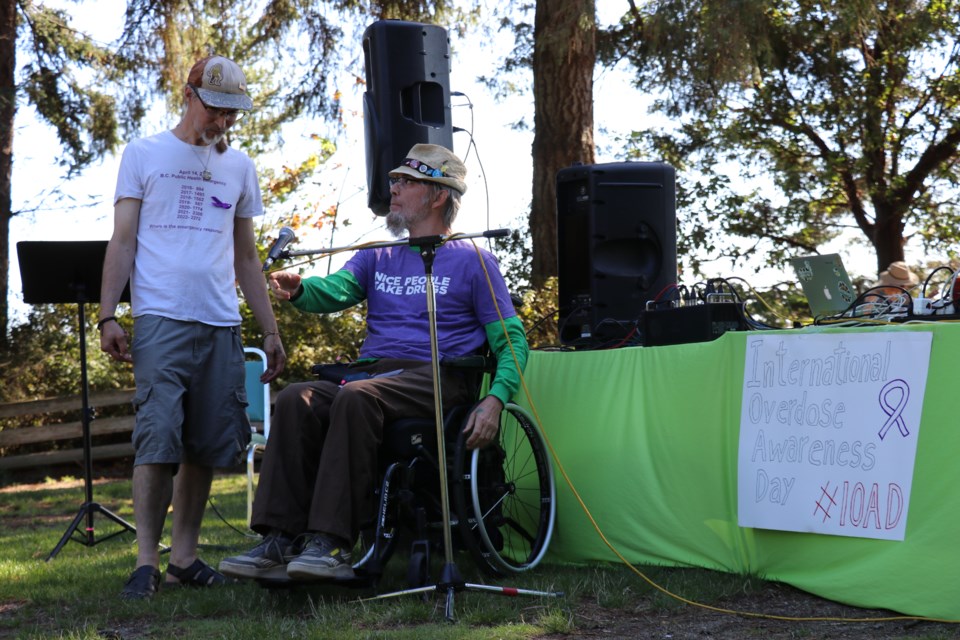“Auntie,” “mother,” “survivor,” read some of the dozens of stickies affixed to the wall at Mission Point House, denoting qualities of people lost to toxic drugs.
“When we die, it’s a moment in our lives, it’s not our whole life,” Jennie Biltek of Sunshine Coast Hospice explained at the Sunshine Coast International Overdose Awareness Day event Aug. 31.
The event was the day after the BC Corner’s Service announced 1,365 people died of toxic drugs in B.C. in the first seven months of the year, 15,140 since the health emergency began in 2016.
Biltek continued, urging people to remember people they have lost – or to hold space for someone who doesn’t have anyone to hold space for them. “Remembering [those who have died] for the million beautiful things. Thinking about the qualities, the interests, the passions that individuals had, the way they laughed, perhaps the way they smiled, the way they waved, the way they made you feel, the special things that only they could do and offer.”
A dozen or so people gathered in Mission Point Park for the event organized by Brian Mackenzie and Kenn Quayle of i2i Peer Support, with support from Vancouver Coastal Health and hospice. The Threshold Singers and Virginia Lennig provided musical offerings. shíshálh Nation also hosted a larger event earlier that day.
Addressing the crowd, Mackenzie said there’s been some controversy around the event as “overdose” isn’t the preferred term in Canada, but it is the most commonly used term internationally for toxic drugs.
Mackenzie pointed the crowd toward some resources for learning about the crisis, including Benjamin Perrin’s 2020 book, Overdose: Heartbreak and Hope in Canada’s Opioid Crisis; Undoing Drugs by Maia Szalavitz for a history of harm reduction and Stewart McMillen’s graphic novel War on Drugs.
Talking to safer supply, “I wouldn’t be able to stand here in front of you today if it wasn’t for prescribed safer supply,” Mackenzie told the crowd, he pointed to Richard Cowan’s term, the “iron law of prohibition.”
“This is the understanding that when you prohibit a substance, then the markets will find the most concentrated, easiest-to-smuggle way of supplying that substance,” Mackenzie said, pointing to the math of fentanyl being much, much cheaper to produce than heroin. “And as they’re making the fentanyl harder to get, we’re getting things like animal tranquilizers and stuff like that,” Mackenzie told the crowd.
“We really need a safe, regulated supply for drugs. We have regulated alcohol, we have regulated tobacco, they kill a lot more people every year than illicit drugs – despite the fact we’re losing six people a day to illicit drugs.”



